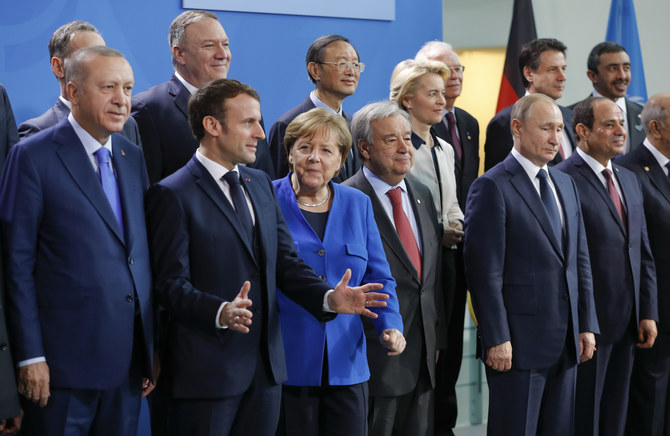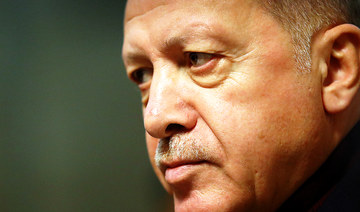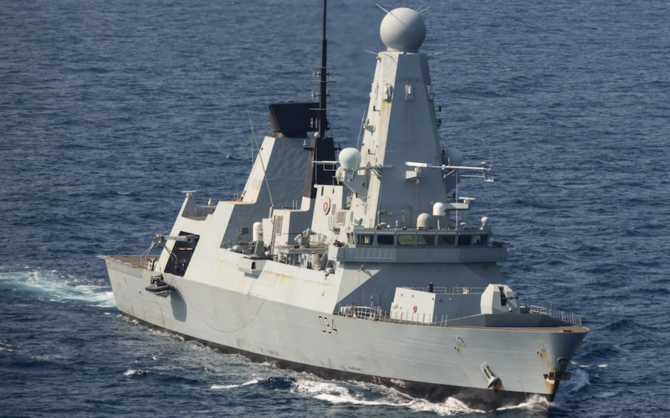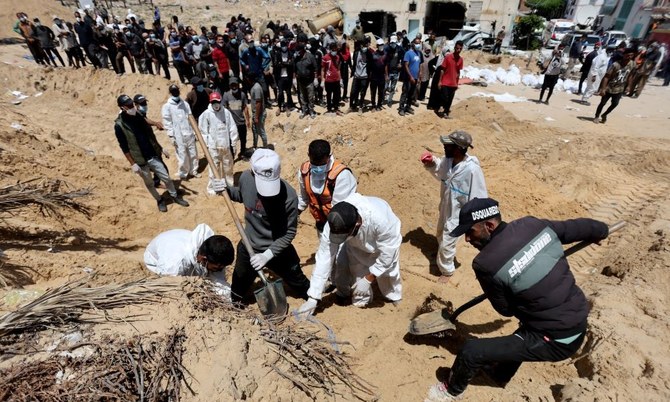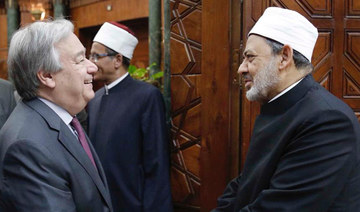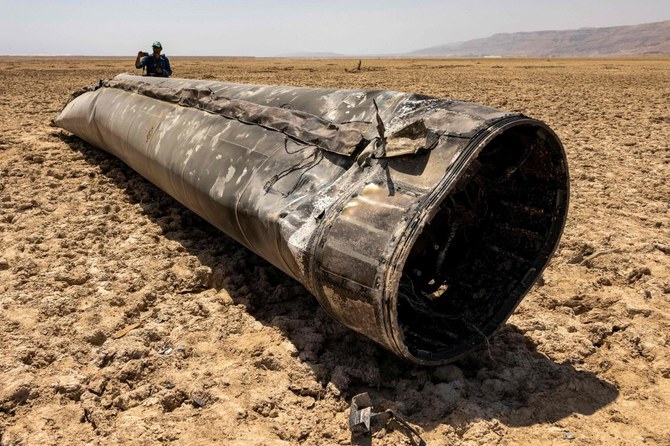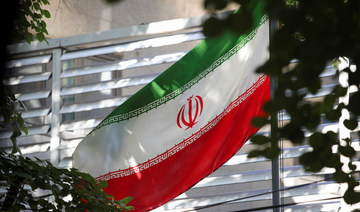BERLIN: World leaders were ready on Sunday to pledge an end to all foreign involvement in the conflict in Libya after a UN-sponsored peace summit in Berlin.
The UN wants foreign powers who wield influence in the region to stop supplying weapons, troops or finance — either to the UN-backed Government of National Accord (GNA) in Tripoli or the rival Libya National Army (LNA) led by eastern military strongman Khalifa Haftar.
All sides will be asked to sign up to a plan to refrain from interference, and commit to a truce that leads to a lasting end to hostilities. A draft communique from the summit also urges all parties to re-commit to a widely ignored UN arms embargo and raises the prospect of Libyan political talks in Geneva at the end of the month.
Turkish President Recep Tayyip Erdogan has sent military trainers and advisers to help the beleaguered forces of GNA leader Fayez Al-Sarraj, and has also redeployed up to 2,000 Turkish-backed mercenary fighters from the conflict in Syria.
French President Emmanuel Macron said he had “acute concerns over the arrival of Syrian and foreign fighters in the city of Tripoli,” and added: “That must end.”
The United Arab Emirates’ minister of state for foreign affairs, Anwar Gargash, tweeted on Sunday night that the UAE supports efforts by the Berlin conference on Libya to seek a political solution to the crisis in that country.
The minister added in a separate tweet that marginalization of the Arab role in Libya as happened in Syria will not happen again.
Clashes since April have killed more than 280 civilians and 2,000 fighters and displaced tens of thousands, until a fragile cease-fire backed by Russia and Turkey was put in place on Jan. 12.
Nevertheless, GNA forces accused Haftar’s militia of opening fire on them in southern Tripoli on Sunday, and Al-Sarraj asked for international “protection troops” if Haftar kept up his offensive.
Sunday’s summit was nearly derailed before it began when pro-Haftar forces blocked oil exports at Libya’s key ports, crippling the Tripoli government’s main source of income. Erdogan said Haftar must drop his “hostile attitude” if Libya were to have any chance of peace.
However, an analyst close to Haftar told Arab News that the commander objected to Libya’s oil revenue being used to fund mercenaries sent by Erdogan from Syria to fight Haftar’s forces in Libya.
“The Sarraj government is paying these fighters from northern Syria $2,000 a month each,” Kamel Merache said.
“The LNA wanted to send a strong message to all international parties that the forces on the ground must be taken into account in any future negotiation with the Sarraj government, and the LNA now controls 90 percent of the oil fields.”




